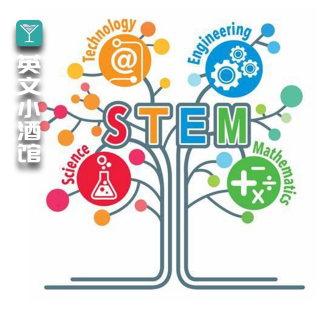
介绍:
【Geek Time】-“极客”时间,和“科技宅”Brad一起聊神秘有趣的“黑科技”“高科技”“硬科技”。欢迎关注公号【璐璐的英文小酒馆】,可以查看更多精彩内容,查看英语全文稿哦~
Hi, everyone. And welcome back to Geek Time.欢迎回来, 【Geek时间】.
Hi, Brad. Hello, Lulu. So what are we gonna talk about today?
Today I think we'll talk about STEM. STEM. S-T-E-M. I know that. It's science, technology, engineering, and mathematics. Right. OK. So you are in STEM. Yeah, I studied engineering.
And shall we talk about STEM as in part of the education?
That's primarily what STEM is set up to be. It's focused to be not just people working in these fields as STEM fields, but also as an idea of a way to teach young people.
Okay. So first of all, for example, in United States, when did STEM education start?
It's something that kind of started in like the last decade or so. It's probably like in more smaller pockets, maybe the decade before that. But really it's been something that's been pushed over the last decade.
But I'm not talking about STEM as a concept. Let's just say for people who are receiving education, when does it start? It starts usually in elementary school.
Elementary school. And is it as actual subjects or as what kind of subjects like math or…
It's…the primary focus of this is to kind of merge the subjects together, rather than kind of like sectioning off all the subjects as kind of like separate ideas, we want to merge them together. I see.
When students learn math, they go through, they learn all the tables and all these things. They learn the formulas, but they don't really connect that to other subjects. And so what this is trying to do is trying to merge the subjects together. So that way, you're not just seeing it one by one. I see.
Would you say, in general, I know that you have lived in Asia for ages that you haven't really been back to the States, but what would you say in general, do you think in America, schools or general education sector pays a lot of attention to STEM especially primary education and secondary education?
Nowadays, yes. But definitely when I was a kid, not very much. Ok. Why is that?
It's been just because there's a lot of young people who shy away from these fields. They see it and they see it as something that's really difficult. They want to avoid taking the classes that are like math. Math is really difficult. When you take a class like history, you give an answer, you kind of get partial credit for if you're partially right. Whereas you take a math class, if you're wrong you’re wrong. if it's 5.0 but it's actually like 5.1, you're wrong. Kids kind of like… math was really scary for a lot of people, because you can't fake it. Right.
And I guess that's why a lot of the STEM people who work in STEM in the United States they are actually immigrants and from other countries.
There's not a lot of people who go into STEM fields in the US these days. It's changing of the last like 10 years there's been a big movement back into STEM fields, but for the decades before that, we had to kind of import a lot of experts in the field because there just wasn't enough young people in the US who were studying in those fields.
I see. So now it's a shift back. I think it's also because the internet has just enjoyed exponential growth. So with all the IT companies would require a lot more people.
Definitely, like, I think another thing that kind of scared people away was the Dot-com Bubble. There's a lot of young people who were kind of getting into IT. I myself was getting into IT just before the Dot-com Bubble burst.
It's like this, this is it, no more IT.
大家还在听

